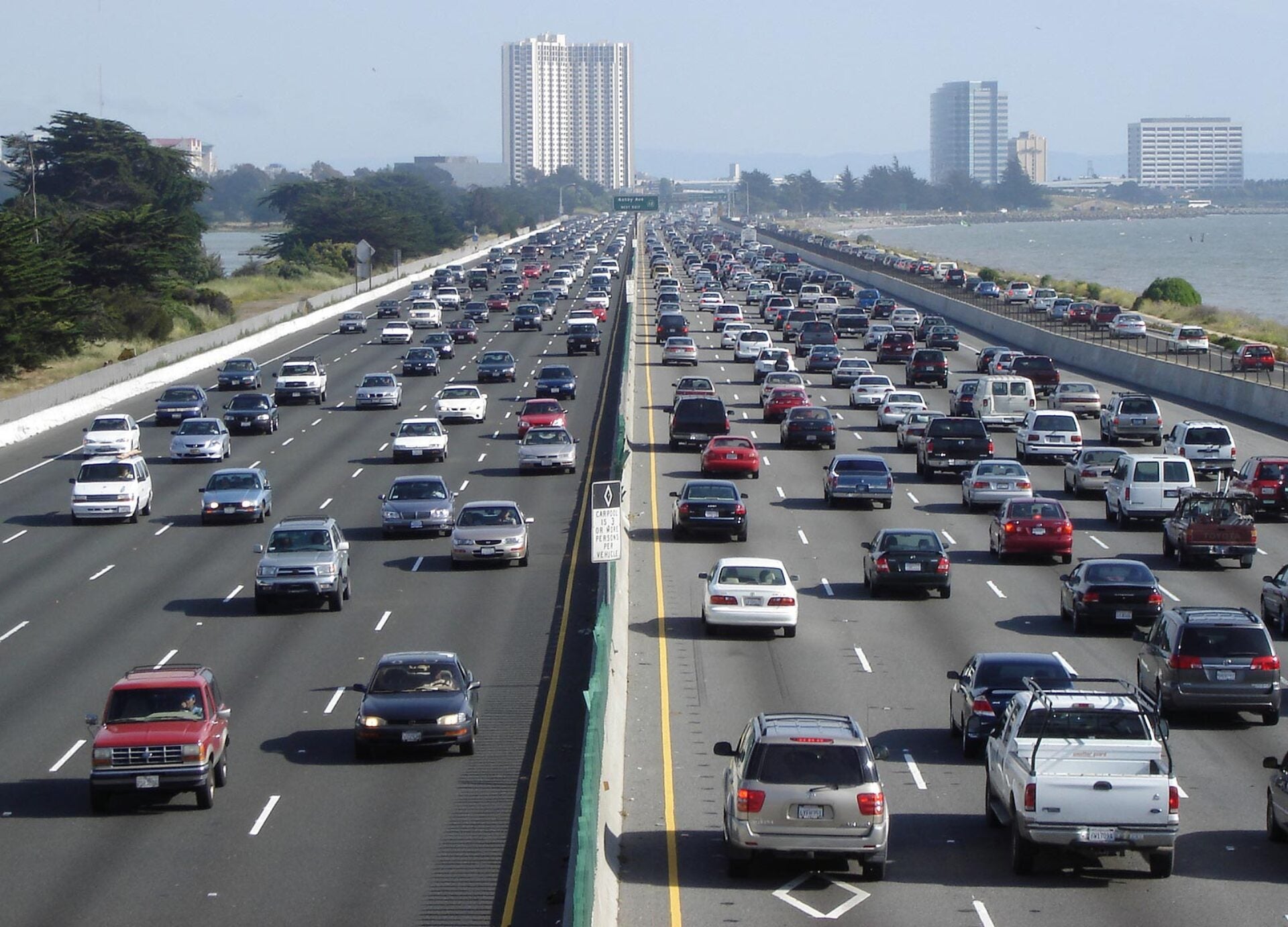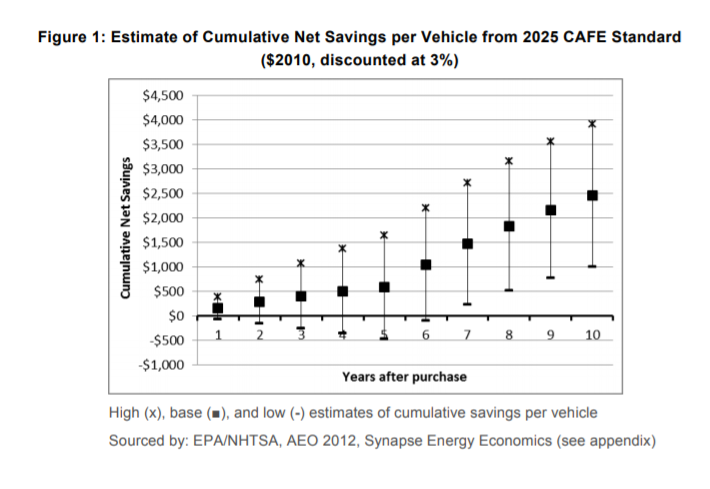
Fuel Efficiency Rollbacks Are Bad for Consumers, Climate, and Public Health
The Trump Administration announced the rollback of 2012 Obama-era fuel efficiency standards for vehicles citing concerns about vehicle safety, technology lapses, and the unpopularity of electric and cleaner cars.
This week, embattled Environmental Protection Agency (EPA) Administrator Scott Pruitt announced the rollback of 2012 Obama-era fuel efficiency standards for vehicles. The EPA cited concerns about vehicle safety, technology lapses, and the unpopularity of electric and cleaner cars as justification for the rollback.
The Corporate Average Fuel Economy (CAFE) standards aim to achieve an average vehicle standard of 54.5 miles per gallon by 2025 and were seen as a major victory for President Obama. The EPA’s announcement this week will begin a new, months-long, rulemaking process to reexamine these targets and create a new proposal for cars built between 2022 and 2025. During this process, the science and analysis used to justify the rollback will undoubtedly be scrutinized.
Many of the arguments made by the EPA against the fuel efficiency standards have been challenged by industry experts. The EPA’s 16-page draft plan that announced the rollback provided few details or analysis justifying the decision. It also relied heavily on arguments provided by industry itself, namely from the Alliance of Automobile Manufacturers which is a lobbying group representing 12 of the largest auto manufactures. This is concerning, especially given the auto industry’s history of lying about compliance with standards. Major automakers such as GM and Volkswagen have recently been caught cheating in emissions testing.
The EPA broadly claims that the fuel efficiency standards are negatively impacting the auto industry and consumers, but the facts show that these standards have been beneficial. Over the life of new vehicles, the Obama Administration standards will save an estimated $1.7 trillion for consumers and cut America’s oil consumption by 12 billion barrels, while reducing greenhouse gas emissions by 6 billion metric tons. From 1975 to 2008, fuel economy standards have generated $2.1 trillion in consumer savings according to the Consumer Federation of America. And a car purchased today that meets the 2025 standards would save a consumer up to $4,000 in fuel over the lifetime of the vehicle. These are real savings that can have a big impact on the lives of the average American.

The fuel cost savings are coupled with the immense public health benefits of getting dirtier cars off the road. Air pollution, much of which is generated by the transportation sector, prematurely kills 200,000 people a year in the United States. Previous EPA research estimates that by 2025, the current vehicle standards will lead to upwards of $2.1 million in health benefits from reduced particulate matter pollutants.
Last year, the transportation sector surpassed power plants as the largest source of greenhouse gas emissions in the United States. Given the Trump Administration’s efforts to repeal the Clean Power Plan that regulates fossil fuel power plants, the fuel efficiency standards are the biggest effort the United States is making to combat climate change. With relaxed fuel economy standards and decreased power plant emissions regulation, the United States will not be making progress on combating climate change from our two largest emitting sectors.
The current fuel efficiency standards are necessary and working. They are also popular— recent polling shows they are supported by 7 out of 10 Americans. The proposed rollback by the Trump Administration is a blatant attempt to appease automakers with little regard for the impact to consumers, the climate, or public health.
Mollie Simon
Senior Communications SpecialistMollie Simon is the senior communications specialist at the Kleinman Center. She manages the center’s social media accounts, drafts newsletters and announcements, writes and publishes content for our website, and regularly posts to our blog.

